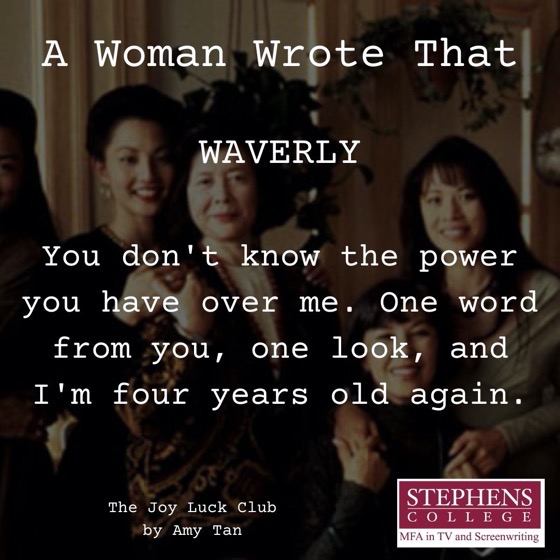I’m happy to announce the publication of a special issue of the Journal of Screenwriting focused on “Women in Screenwriting” that I co-edited with my SRN colleague Rose Ferrell, lecturer at the Western Australian Academy of Performing Arts, at Edith Cowan University.
While focusing on females was our first mandate, our second mandate was to be as international as possible. This issue, then, includes articles about women in screenwriting covering five continents including countries such as Japan, China, Syria, Argentina, Brazil, Peru, Zimbabwe and Canada. — Rosanne
Contents
Volume (11): Issue (3)
Cover date: 2020
- Editorial introduction by Rose Ferrell, Rosanne Welch
- Tang Cheng: The first female animation screenwriter and director in the People’s Republic of China by Shaopeng Chen
- Scouting for scripts: Mizuki Yōko and social issue film in post-war Japan by Lauri Kitsnik
- Who is the author of Neria (1992) – and is it a Zimbabwean masterpiece or a neo-colonial enterprise? by Agnieszka Piotrowska
- The Hakawati’s Daughter: How the Syrian revolution inspired a rewrite by Rana Kazkaz
- The silent women: The representation of Israeli female soldiers in Israeli women’s films by Mira Moshe, Matan Aharoni
- How the scripts of Latin American screenwriters Lucrecia Martel (Argentina), Anna Muylaert (Brazil) and Claudia Llosa (Peru) have made a mark on the world stage by Margaret McVeigh, Clarissa Mazon Miranda
- ‘Polite, no chill’ for the win: How Emily Andras engaged fans and overcame problematic tropes in Wynonna Earp by Tanya N. Cook
- Battle of the sketches: Short form and feminism in the comedy mode by Stayci Taylor
- Anita Loos Rediscovered: Film Treatments and Fiction, Cari Beauchamp and Mary Anita Loos (eds) (2003) by Cierra Winkler
- Modern Film Dramaturgy: An Introduction, Kristen Stutterheim (2019) by Andrew Wickwire
- Nobody’s Girl Friday: The Women Who Ran Hollywood, J. E. Smyth (2018) by Toni Anita Hull
- How to Write for Moving Pictures: A Manual of Instruction and Information, Marguerite Bertsch (1917) by Diane Barley
The Journal of Screenwriting is an international double-blind peer-reviewed journal that is published three times a year. The journal highlights current academic and professional thinking about the screenplay and intends to promote, stimulate and bring together current research and contemporary debates around the screenplay whilst encouraging groundbreaking research in an international arena. The journal is discursive, critical, rigorous and engages with issues in a dynamic and developing field, linking academic theory to screenwriting practice.
Get your copy and subscription to the Journal of Screenwriting Today!
* A portion of each sale from Amazon.com directly supports our blogs
** Many of these books may be available from your local library. Check it out!
Podcast: Play in new window | Download
Subscribe: RSS


![41 UK TV In The US from Why Researching Screenwriters Has Always Mattered [Video] (39 seconds)](https://rosannewelch.com/wp-content/uploads/2020/12/rmw-sao-paolo-41.png)


![02 Writers Matter from There And Back Again: Writing and Developing for American TV [Video] (1 minute 3 seconds)](https://rosannewelch.com/wp-content/uploads/2020/12/rmw-oxford-brookes-02.png)

![40 The Almighty Johnsons from New Zealand from Why Researching Screenwriters Has Always Mattered [Video] (1 minute 12 seconds)](https://rosannewelch.com/wp-content/uploads/2020/12/rmw-sao-paolo-40.png)
![01 Introduction from There And Back Again: Writing and Developing for American Television]: from Freelancing to Writers Rooms [Video] (1 minute)](https://rosannewelch.com/wp-content/uploads/2020/12/rmw-oxford-brookes-01.png)

![There And Back Again: Writing and Developing for American Television]: from Freelancing to Writers Rooms [Video] (52 minutes)](https://rosannewelch.com/wp-content/uploads/2020/12/oxford-brookes.png)
![38 More On International TV Shows and the US from Why Researching Screenwriters Has Always Mattered [Video] (1 minute 18 seconds)](https://rosannewelch.com/wp-content/uploads/2020/11/rmw-sao-paolo-38.png)